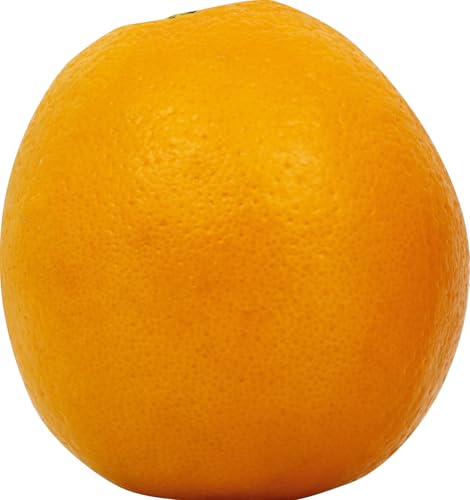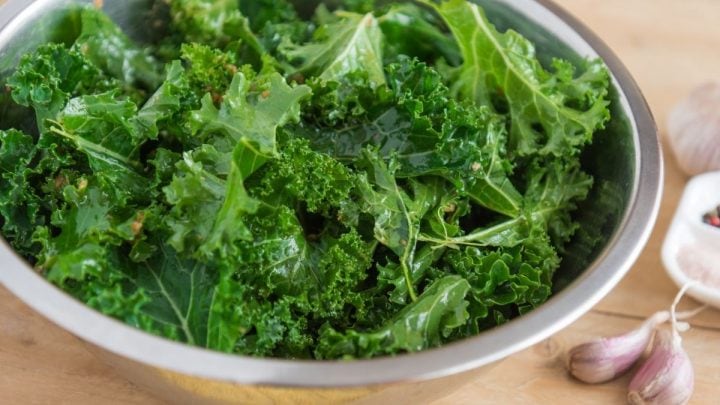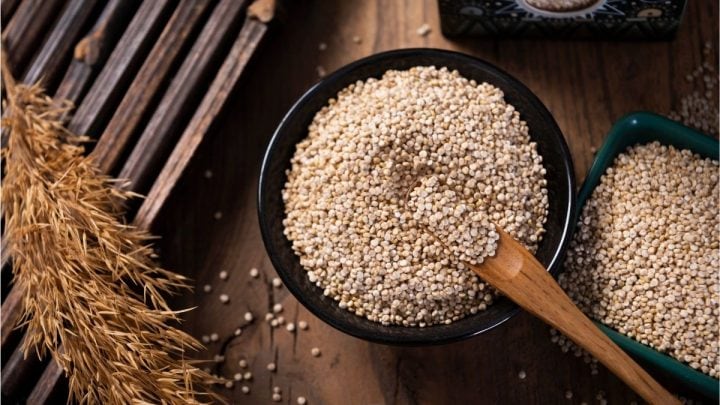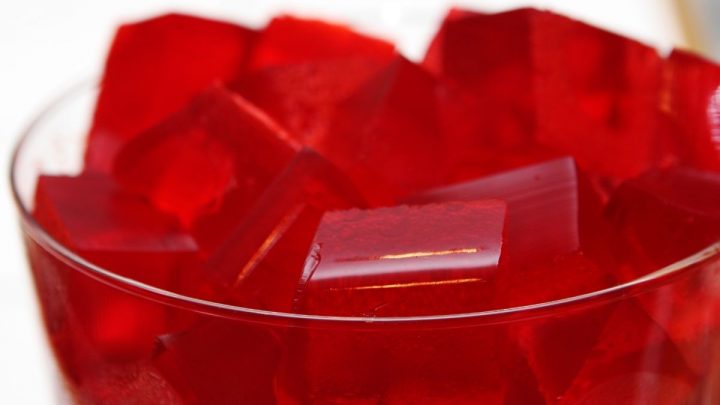This post may contain affiliate links which means I will get a commission if you make a purchase at no additional cost to you. As an Amazon Associate I earn from qualifying purchases. Please read my disclosure for details.
Wondering how to tell if an orange is bad? Keep reading to find out everything you need to know!
I have a few oranges in the fridge that I know are bad, but I don’t want to throw them away because they’re still good for juicing or something else. Is there any way of telling if they’re awful?
A fantastic source of vitamin C, oranges are a favorite fruit for many. Whether you enjoy eating this citrus fruit for breakfast, lunch, or even just as a light snack, you will want to know whether your orange is safe to eat.

WANT TO SAVE THIS RECIPE?
So you will need to know the average shelf life of your orange, and whether it can be eaten or made into orange juice.
You will of course want to opt for a ripe orange so that you can get the very best flavor from your favorite fruit.
However, if you’ve left it to languish in the fruit bowl, you will need to ensure that your chosen orange is safe to eat.
Whether you’ve opted for a navel orange, blood oranges, or any other variety of orange, we’re going to give you a few tips and tricks to help you work out if your orange is still safe to eat or if it’s gone bad.
So let’s take a look at everything you need to know about varieties of oranges to see whether they’ve gone bad!
Do Oranges Go Bad?
Yes, oranges do go bad eventually. You may think that blood oranges, navel oranges, or other varieties can last longer than one or the other. However, the general rule of thumb is that oranges will typically start to go bad after a week if left out at room temperature.
In fact, the orange starts to biodegrade once it has been picked from the branch on the orange tree.
A juicy orange won’t remain that way for long, but you can elongate its shelf life by storing your oranges in your refrigerator.
If you want to enjoy your orange snack, we’d recommend doing so before the end of the week. If you plan on using your oranges to make orange juice or for use in baking, it will be better to do this when the orange is riper.
If you have bought a perfectly ripe orange, and it looks fine, but smells funny or feels soft, then it is probably spoiled. If you have noticed any of these signs of spoilage, then you should throw away your orange immediately.
It is important to understand that most oranges do not last forever when stored properly. This means that once you buy your orange, you should consume it within a week or two.
How Long Do Oranges Last?
As mentioned above, oranges tend to lose their freshness over time. The amount of time that your orange has been sitting around varies depending on how much sunlight it gets. In general, it takes between three weeks and four months for an orange to reach full ripeness.
However, the longer you leave your orange out, the more likely it is to start to rot. You may also find that your orange starts to develop a strange odor once it reaches this point.
It is important to remember that when you buy an orange, you are buying a fully ripe orange. You won’t be able to tell if your orange is ready to eat until you cut it open.
On average, oranges tend to last for about two weeks after being picked from the orange tree. After that, they begin to decay quite quickly.
Once your orange begins to rot, it will continue to deteriorate rapidly. At this point, it is not safe to eat.
When stored at room temperature, your fresh oranges will last you for up to 1 week. You can also store them in the refrigerator if you want to extend the life of oranges.
As long as you store your oranges properly in your refrigerator, they should last you for around 3 to 4 weeks before they start to show signs of spoilage.
For more frequently asked questions, visit our index of food-related questions and answers. Here are a few suggestions for you:
How To Tell If An Orange Is Bad
The most obvious thing to look for, of course, are signs of spoilage. This will be an immediate indicator as one of the signs of spoilage is signs of mold. This could be white mold or green mold, and both will signify that your orange is coming to the end of its life.
Other signs of spoilage include discoloration, soft spots, or even rotting. If you notice these signs of spoilage on your orange, then you should definitely discard it before it goes rotten.
Your orange should be a nice bright color if it is still ripe. If there are brown spots or dark spots on your orange, then it is likely coming to the end of its shelf life.
Another way to know whether your orange has started to go bad is to feel it in your palm. Give it a gentle squeeze, and make a note of the firmness. If you are holding a mushy orange, this is a good sign that it is on its way out.

How To Store Oranges?
To get the very best results from your oranges, you will need to know how to store them properly.
There are many ways to store your oranges, but the main two are of course storing them at room temperature and storing them in your refrigerator.
If you choose to store your oranges at room temperature, then you will need to avoid storing them in direct sunlight or in a warm area. This can cause your oranges to degrade faster, meaning you have less time to enjoy them.
If you do decide to keep your oranges at room temperature for a few days, then you should wrap them tightly in plastic wrap so that they don’t dry out.
Alternatively, you can store your oranges in the fridge. This will help to preserve their flavor, and will slow down any signs of spoilage.
When storing your oranges in the fridge, make sure that you remove them from the packaging first. You will then need to keep them either in plastic bags or plastic wrap to preserve that precious moisture.
In Summary: How To Tell If An Orange Is Bad
So there you have it! You now know that no matter how much you would like them to, your fresh oranges won’t last you forever.
If you choose to store your oranges at room temperature, they will last you for around a week. If you decide to store them in the refrigerator, then they can last you up to a month before they start to show signs of spoilage.
Make sure to examine your oranges for signs of spoilage before you consume them. If your oranges show any sign of discoloration, mold growth, or they become soft and mushy, it will be time to throw them out.
So to avoid a bad orange, you should make sure to use your favorite fruit before the week is up. When life gives oranges, make orange juice after all!
Can You Still Eat It?
IF you found the content of this post helpful, you'll love these related posts.
Does Coffee Creamer Go Bad? How Long Does Coffee Mate Last?
It is true that you can drink your coffee with or without coffee creamer. But does coffee creamer go bad? And how long does it really last?
Does Beef Jerky Go Bad? Everything You Must Know!
Beef jerky is a popular snack in our nation and can often be found in most places, but the question is – does beef jerky go bad? We're going to find out!
How To Tell If Salmon Is Bad
Wondering how to tell if salmon is bad? From the smell and color to the taste of the fish, here's everything you need to know.
Should You Eat It? Here's How To Tell If Kale Is bad!
Kale may be good for our wellbeing, but not so much if it’s expired! Learn how to tell if kale is bad and should be discarded!
Does Sauerkraut Go Bad? How Long Does Sauerkraut Last?
Does sauerkraut go bad? Does any pickled food go bad? Storage, expiration, and more. Find out here!
How To Tell If A Sweet Potato Is Bad
Explained: how to tell if a sweet potato is bad. Can sweet potatos go bad? Before you put it in the garbage, read this!
Does Quinoa Go Bad? How Long Does Quinoa Last?
Many people love quinoa, a supposed superfood. But does quinoa go bad? How long does it last? Find our more 0 shelf life, storage, expiration, and more.
Does Jello Go Bad? How Long Does Jello Last?
Jello is a childhood favorite for many people around the world. Because it is so popular, you’ve probably never seen it go bad. Does jello go bad? Find out.
Does Corn Syrup Go Bad? How Long Does Corn Syrup Last?
So, does corn syrup go bad? You'd be surprised to find out more about the shelf life of your favorite pancake topper!
Does Miso Go Bad? How Long Does Miso Paste Last?
Does miso go bad? Don't guess! Get the complete details on how long miso paste lasts here.














